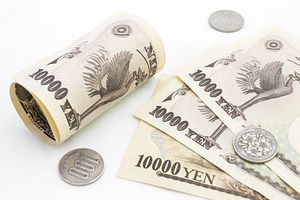More information about Prime Minister Shinzo Abe’s next round of structural economic reforms has emerged since last Friday. The reforms, which will be announced at a Cabinet meeting later this month, are expected to cover large swaths of the economy, such as agricultural reform, geographically based “Special Zones” for business, and more aggressive investment strategies at the Government Pension Investment Fund (GPIF). However, one of the most anticipated reforms involves the corporate tax code. Until last Friday, though, there was scant information about this element. What has been released over the weekend may do little to pique the interest of businesses and investors, anticipating as they are the large, systemic changes that Abe has been hinting at for months.
While in Rome to meet with Italian Prime Minister Matteo Renzi and Pope Francis, Abe said he would begin to reduce the corporate tax rate in fiscal 2015, which will begin in April of that year. According to the Asahi Shimbun, the cut will be undertaken is such a way that it does not affect the government’s goal to return to fiscal balance by 2020. With the current corporate tax rate around 35 percent, Abe gave no clear signal of how far the government would cut the tax next year. He did however tell chairman of the ruling Liberal Democratic Party’s (LDP) tax panel, Takeshi Noda, that the tax cut will be part of the government’s economic and fiscal guidelines, which will be released later this month. The Asahi Shimbun article noted that the state minister for economic and fiscal policy, Akira Amari, and others in the LDP want to see the tax rate go below 30 percent.
On Saturday, Amari clarified his position when he told the Jiji Press that both he and Abe wanted to see the effective corporate tax rate below 30 percent sometime within the next five years. During a speech in Osaka, Amari said that Abe will clearly lay out to the public his plan to change the tax code before the government adopts his new fiscal and economic guidelines. While the likely start date, time range and degree of the cut is by far the most information released to date on this issue, it is well short of the 20-25 percent range that business leaders were hoping to eventually see. The extended time frame of the cuts may also leave businesses disappointed.
Last Friday, the government also said it had drafted “new economic and fiscal policy guidelines calling for boosting the functions of its Council on Economic and Fiscal Policy to pursue economic revitalization and fiscal soundness,” according to a separate Jiji Press article. The draft emphasized the need to increase corporate profitability, increase dividend payments and employee pay through technological innovation and better corporate governance. With regard to corporate governance, the draft referenced the previously mentioned need to increase the use of outside board directors, which would lead to better medium- and long-term development. The draft also references Abe’s current economic reforms, saying that given the current rising of consumer prices, the country is making good progress toward exiting deflation.
There are signs that some Japanese companies are getting ahead of the curve, irrespective of what policies Abe may put in place. Reuters reported that two major Japanese retailers, Uniqlo and Don Quijote, are making moves to increase their percentage of full-time workers, as the labor pool has tightened in recent months. These economic “bottlenecks” may force companies to become more creative and efficient to stay profitable. Uniqlo is implementing more flexible options for full-time employment in the hopes of attracting more female workers, a key tenant of Abe’s new economic plan. Don Quijote has simplified its job application process, which has caused the number of applicants to soar. Reuters reported that Uniqlo spokesman Keiji Furukawa said the increase in full-time hires will increase costs in the short-term, but that as labor competition increases the move will pay off over the long-term.
While Abe’s government has finally put some tentative numbers to its upcoming corporate tax cuts, they may not be bold enough to entice businesses to drastically increase their future domestic investment plans. Similarly, the mention of suggesting changes to the structure of Japanese boardrooms – such as the number of outside directors – is unlikely to inspire expectations of radical change unless regulators are given the power of enforcement. The news of two leading Japanese companies implementing portions of Abe’s reforms before they are announced will be heartening for the government. Whether changes like this will gain traction with a significant majority of the business community is another matter, but Abe may have to depend on this type of spontaneous change if his new policies fail to deliver.
































